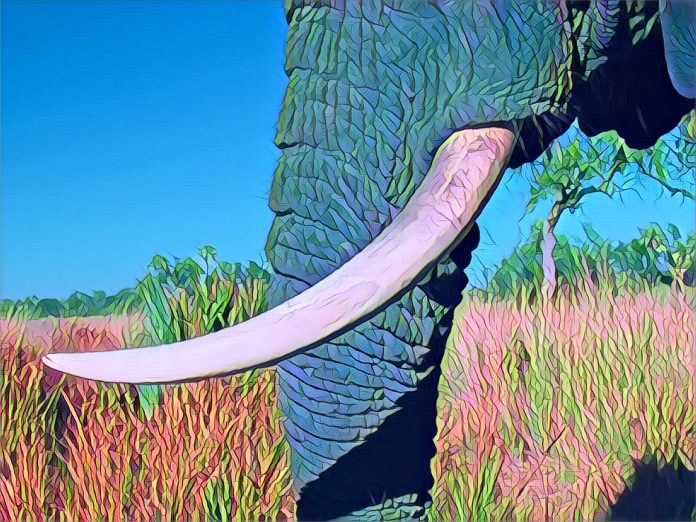Nigeria has taken a bold step to combat the illegal ivory trade and protect its dwindling elephant population by destroying a huge stockpile of confiscated elephant tusks and worked ivory worth $11m.
The ivory crush, held in the Nigerian capital Abuja on Tuesday, was the first of its kind in the country and marked a significant milestone in its efforts to curb wildlife trafficking and conserve its natural heritage.
The initiative was spearheaded by the National Environmental Standards and Regulations Enforcement Agency (NESREA) in collaboration with the Elephant Protection Initiative Foundation (EPIF).
The destroyed ivory, weighing almost 2.5 tonnes, had been smuggled from various African countries and seized by Nigerian authorities over the years. Some of the ivory had been carved into artworks ready for sale.
Environment Minister Iziaq Salako told an event in Abuja that he wanted to send a clear message that the illegal wildlife trade would not be tolerated in Nigeria.
“We are proud to stand at the forefront of the fight against the illegal ivory trade. Today’s ivory crush is a symbol of Nigeria’s unwavering commitment to wildlife conservation and the protection of our natural heritage,” he said.
“By destroying these confiscated ivory stockpiles, we send a strong message that wildlife trafficking will not be tolerated in our country. Nigeria is taking a firm stance, and we call on the global community to join hands in eradicating this illicit trade that threatens the very existence of our elephants.”
The destroyed ivory will now be pulverized into a powder, which will be used to build a monument symbolizing the importance of elephants and Nigeria’s determination to protect them.
Nigeria has become a major hub for the illegal trade in animal parts from Africa, especially ivory and pangolin scales. The biggest markets are said to be in Asia, where ivory is used for ornaments and traditional medicine, and pangolin scales are believed to have healing properties.
In October, Nigeria publicly destroyed about four tonnes of seized pangolin scales, another gesture of its commitment to wildlife protection.
The illegal ivory trade poses a severe threat to elephant populations across Africa, contributing to a steep decline in the numbers of these majestic creatures and fuelling organized crime.
Tens of thousands of elephants are killed each year for their tusks, despite a ban on the international trade in ivory since 1989 by the UN Convention on International Trade in Endangered Species of Wild Fauna and Flora (CITES).
The most recent African Elephant Status Report estimates that about 415,000 elephants remain in Africa today compared to over 1.3 million elephants found in the continent in 1979. As few as 400 remain today in Nigeria.
In some cases, elephants are killed when they come into contact with humans or destroy crops. In December, Nigerian officials began investigating following outcry at a viral video that showed soldiers shooting two elephants that had wandered onto farmland.
Nigeria is not the only African country that has taken action to destroy its ivory stockpiles. In recent years, several countries, including Kenya, Gabon, Ethiopia, and Malawi, have also burned or crushed their ivory to demonstrate their commitment to ending the illegal trade and saving the elephants.
Conservationists have welcomed Nigeria’s ivory crush as a positive step towards stamping out wildlife trafficking and raising awareness of the plight of the elephants.
“The Elephant Protection Initiative is honored to stand with the Government of Nigeria at today’s ivory crush. The destruction of confiscated elephant ivory in Abuja will not, in itself, put an end to the trafficking of elephant ivory. But it is a tangible step towards that goal and a powerful symbol of Nigeria’s leadership on this issue,” said John Scanlon, Chair of the EPIF.
“We stand united against the illegal ivory trade, and our actions today are not only crucial in preserving the majestic elephants for future generations but also in sending a clear message that Nigeria will do whatever it takes to protect our elephants and other endangered wildlife.”
Source: Yahoo News



